- Home
- Helen Dunmore
Birdcage Walk Page 6
Birdcage Walk Read online
Page 6
‘Was that before Delilah, or after?’ I asked.
‘It was before.’
‘So he did not learn much from his experience.’
‘She betrayed him,’ said Diner, ‘as he knew she would.’
‘What do you mean?’
‘He knew the woman would betray him, and yet he still told her.’
‘And this is the story you have put into the tiles on our floor?’
Diner laughed and put his arms around me, lifting me to him. ‘It is the story of the honey that you are to me, Lizzie.’
‘From a lion’s carcass? Are you Samson then?’
He held me away from him. His face was heavy. ‘Whatever strength I have, Lizzie, I swear it is all for you. Whatever sweetness there is in my life, it comes from you. I know that you will not betray me.’
‘Of course I will not,’ I said, making light of it although it chilled me that he should think of betrayal. ‘I will never coax any of your riddles out of you, or cut off your hair while you are sleeping.’ I smoothed back a lock of it. ‘You shall keep it all, I promise. Tell me, Diner, did you learn your texts well when you were a boy?’
‘I would have been thrashed until blood ran, if I had not known them by heart and been ready to answer any question on them.’ His tone was calm, as if this was the order of things.
‘There will be none of that with our children,’ I said.
‘Our children? What spirits are you conjuring now, Lizzie?’
‘Invisible ones, except to me.’
‘Do you think of them often?’ he asked, almost jealously, as if I were keeping something from him.
‘Of course,’ I said.
He folded me to him again. I felt him quiver, as he did sometimes, as if from weakness, but I knew it was not weakness. The quiver came from him holding back his own strength. I thought of my mother’s writing, and that nowhere in her pamphlets did she write that the muscles in a man’s arms could hold a woman still whether she wanted or no. I wanted Diner to hold me, but his story of the lion and the honey did not please me. I would keep my thoughts hidden, and not look closely at the tiles.
That night I woke to the coldness of Diner’s body as he slid into bed beside me. He was cold all along the length of him, and I shifted away without meaning any harm. He pulled me to him.
‘Lizzie,’ he said, and his voice was hoarse, as if he had been shouting at the men. But it was the deep middle of the night. I tried to raise myself to look at him, but of course I could see nothing. Besides, he was holding me too tightly.
‘Are you ill?’ I asked. I thought it might be the shivering fit that takes hold before a fever.
‘No,’ he said. ‘Hold me, Lizzie.’
Perhaps he had had a nightmare, and had got up to walk it out of his head but found that it only settled more deeply there.
‘It’s all right,’ I said, and I wriggled myself deep into his arms. He was shaking now. Surely it was the prelude to a fever. What should I do? Hannah used to sponge my hands and arms, to cool me. But he was still cold and stiff all over, not like his warm living self. It was as if something had got hold of him and was tossing him between its teeth. I heard his teeth chatter and now I was shaking too, not from fear but from the tremors passing through him into me. I held him tighter.
‘It’s all right,’ I said again. ‘You’re ill, that’s all it is. I’ll look after you.’
I felt a tenderness for him that I had never felt before. I clasped him as close as I could, thinking that the shivers would run out of him into me and then away into the night. I would still him and then he would sleep. But he was shaking worse than ever and the clacking of his teeth was so loud in my ear that I was afraid he would bite his tongue through. Perhaps he could not breathe. The thought flashed through me of shouting for Philo but I rejected it. Diner would not want Philo or anyone to see him like this. I pressed my face against his and spoke softly into his ear so that he would hear me.
‘You’re safe,’ I said. ‘Don’t be frightened. It will pass soon. It’s me, I’m here, it’s Lizzie.’
I am not sure whether he heard me or not but after a while the shaking grew less. Some shudders still went through him but his body began to relax. He grew warmer. I felt a wetness between his skin and mine: he was drenched in sweat. I realised that I was rocking him, very gently, and that his grip on me had loosened. I was holding him now.
He went down into sleep without a word. It was best, I thought. He had sweated as people sweat when a fever breaks, but I had not felt heat in his skin. What was this sickness? I lay awake for a long time. I had eased myself away from him so that I would not get cramp in my arm where he lay on it, but we were still close. Usually, at night, he would turn away from me and fling his limbs wide on the bed as if he were running in his sleep. But tonight he lay curled, still, his face turned to mine.
I thought: Out of the strong came forth sweetness, and now I was glad that he had put those words into the tiles of the floor. I thought that I understood them. He had said that I was honey to him, and it made me glad, but at the same time I was uneasy. I did not like it that a tale of death, rottenness and betrayal had entered our house almost as soon as we were in it.
In the morning I woke and Diner was by the bed, standing there and looking down on me. He was up; he was dressed; he had been out; he had set the men to work. He was himself again, or it seemed.
I sat up, leaning on my elbows. ‘Are you well this morning?’
He frowned. ‘Of course I am well. Why do you ask?’
‘You shook last night as if you had the ague.’
‘Ague! Lizzie, I shall begin to think you are like Delilah and wish to weaken me. I never had a fever in my life.’
I lay back on my pillow. I did not want to argue with him. ‘Will you be late?’
He did not reply but merely nodded and was gone. I threw the bedclothes aside and hurried to dress myself. I would not think about it now.
Throughout May and June the work went on well. All day and into the long light evenings our house was full of the sounds of building. Diner drove the men hard. Sixteen houses at least must be finished before the winter, and they would sell for sure, he said. Buyers would see the terrace as he saw it. Even the dullest spirit would be seized with the desire to live here. The terrace would become the talk of the city and everyone would crave to possess a part of it. Once those houses were sold there would be enough money to complete the terrace, and then the profits would come tumbling in.
I knew we could not afford another winter like the last, with Diner’s capital sunk in the ground and money bleeding from him week after week. I understood his business better now. I listened, and paid attention to figures and conversations. Sometimes I called for him with Philo at my side when he stayed late at Grace’s Buildings, and if he was in the mood for it he would show me drawings and calculations. Sometimes we missed him, and later he would tell me that he had walked the streets for hours, working out his plans.
He was lit up all through those weeks of early summer. He could see the stone curve of the terrace shaping itself according to his vision and he did not care how hard he drove the men. Every day there were a dozen difficulties to be overcome. A delivery not made, or made late so that a day’s progress hung suspended; a workman drunk and falling from a scaffold; accidents, illnesses, orders mislaid; a crate of tiles dropped in transit and cracked: all these things multiplied by many more and always the cost of it, the surging cost of the build which was in Diner’s head from the instant he woke until the time when he began to run again in his sleep.
I lived in the dust of it. These were the clearest, sunniest days of the year and mostly I rose early, before the men arrived for work. God knows they came early enough. Mortar set easily and men whistled as if they liked their work. The young ones did, perhaps, but there were older men whose bodies were already worn and twisted by digging and shovelling and working out in rain and cold with only a length of sacking over their shoulde
rs. Every day they must get up at dawn and haul bricks and stone until their backs broke, if they wanted to live. Their faces were cracked with lines where sweat and dust lodged as the day went on. They worked harder, I saw, whenever Diner was near, because he had no tolerance for any man who could not press himself on through the day as he did.
Sometimes I glanced at the young men who swung themselves from the scaffold with such limberness that it seemed impossible they would ever grow old and struggle to haul barrows of cut stone. There was one called Abel who would play tricks, pretending to fall and then grasping the bar at the last moment, when the foreman’s eye was elsewhere and Diner not to be seen. The others would look up and laugh and egg him on, and they would whistle out a warning too, on a note that I came to know, which meant that the foreman had been spotted. I took care that they never saw me watching. They did not trust me, and why should they have done? For all they knew, Diner had told me to report to him everything that I saw. Perhaps they believed it was why he had brought his wife to live in the middle of a building site.
It was a different matter for the skilled craftsmen. They had a trade and they guarded it jealously. Their skill was built into their hands and nobody could take it from them. The labourers had only their bodies. I came to see what it meant to be a carpenter or a stonemason, and how they could parlay with Diner while the labourers must take whatever was going. They were rough but none of them troubled me: Diner could quell any man, and they all needed the work.
Suddenly furniture appeared, and curtains. I had come to like our house empty, with echoes that travelled from room to room, and the beauty of proportion which he had taught me seen naked, as it were. There was something else I loved about it, although it took me a while to understand what that was: Diner and I were encamped in the house together, with a few things around us that belonged to us, and because this was the way I had always lived it was dear and familiar to me. I was not at ease in a settled home with everything in its place. I preferred to think that at any moment we might whisk up our bits of furniture, put them on a cart and go somewhere we hadn’t even thought of yet. Of course I never said this to Diner. He spoke of our house as if it was built to last us a thousand years.
‘Some furnishings will arrive tomorrow,’ said Diner.
‘What furnishings?’
‘A rug or two for the drawing room. Some little tables. Various things, Lizzie.’
The things were not new or beautiful, but there were plenty of them. They came on a cart and two men shuffled them into the rooms. The rugs smelled fusty. There were pictures to hang on the walls, and a curious marble statue, half woman and half tree, which was placed in the hall. One by one the things filled the rooms, and our house began to look like a place where anyone might live. For me, its beauty was dimmed. When I asked Diner where all this furniture had come from, he said that a friend had accommodated him. He had many such friends, for whom he had once done favours. It was the way the world worked, he told me.
I straightened a mirror and wondered where it had hung before, and whose face it had shown. A friend, Diner said. I wondered what friend it was, and where these furnishings had been before they came here. Diner had furniture when he lived with Lucie. Had he stored it while he was in lodgings, with every penny sunk into the building of the terrace?
I gazed into the mirror. There was my own familiar face, which I never liked to look at too long. What other face had gazed here? I thought of Lucie, whom Diner had never described to me.
A little later I understood the logic of this sudden furbishing. Diner began to bring prospective buyers to our house. As he had said before, there would be no finer workmanship anywhere along the terrace even though our house was the smallest. It was comical, in a way, to see how these buyers were drawn into the house and how they looked around and barely noticed me even when I was sitting in the window, sewing. Diner would say: ‘This is my wife, Elizabeth,’ and I would stand and we would be introduced. Some of them understood that the rooms were beautiful: I could see it in their eyes. They looked past the furnishings into the exquisite spaces that Diner had made. Others needed Diner to tell them about the cost of the marble fireplaces, the quality of the mahogany banisters and the convenience of the mews which would be built behind the gardens. But at some point every one of them would walk to the windows that looked out on to the Gorge and fall silent. Sometimes, if a man had come with his wife, they would look at each other and I would see the eagerness in their faces even though they tried to conceal it for fear of raising the price. Diner would always say to them that this house was by far the least significant in the terrace, and they liked that. They could imagine even greater splendour within the bare roofless shells that might one day be their homes. He would describe to them how the pavement would be finished, and the road below with its mounting-blocks where the carriages would come round.
Week after week, the buyers came. Some of them came twice, or three times, but each time, when it came to putting down their money, they would sheer off. They were skittish as colts, Diner said, but he would have them. It was the times. The unrest in France caused men to hold their money close. He would break them. I saw that he did not doubt himself: the fine weather and the steady pace of the building had brought his confidence almost to exhilaration. He smiled at me as he spoke, as if we were at one in our ambitions. Perhaps we were.
As each day began I would prepare the house carefully, putting flowers into the drawing room and wiping away the dust that settled every hour because of the building work. Philo could not keep up with it. I laid the scene and then I took up my work and sat in the window as leisurely as any lady. I thought of Mammie, and how she would laugh. I pushed away the knowledge that she would be disappointed too, to see me idle my time away in no better cause than putting on a show to catch a wealthy buyer. I smoothed the piece of embroidery which I brought out at these times rather than plain sewing. I would play my part.
I wondered if any of the men had known Lucie. Not the labourers, probably, who were hired from season to season, but there were carpenters and masons who had worked for Diner over the years. They would have seen her. They might have spoken to her. When they saw me, perhaps they compared me to her. I wished that I could look inside their heads, and see what they saw.
6
I had not meant to tell Mammie about Diner’s illness. There was no other name I could find for the sweats and shaking that racked him, even though he denied that he had ever had a fever. Some nights he was perfectly well, and I almost forgot it, and then, for no reason, I would wake and find him clutching me as tremors took hold of him. I could not think of another reason for such shaking, apart from fear, and Diner was not afraid of anyone
Mammie had a way of drawing words out of me, even when I was determined to remain silent. I had already told her that Sarah had left, and although I did not give the reason she understood instantly that there was not enough money. We were sitting together, with Mammie reading aloud to me while I sewed a set of caps for the baby. Hannah and I had sewn the nightgowns already and worked a shawl. Hannah had written a list of what would be needed, and we were fulfilling it steadily. Mammie was reading from Bartram’s Travels. Caroline Farquhar had lent us the book, which she had had from a friend lately returned from Philadelphia, and she sent it with a letter full of such extravagant praise for its author that I was almost dissuaded from opening it. But even my dislike for Caroline could not stop me relishing the book, once we had begun. Travels Through North & South Carolina, Georgia, East & West Florida, the Cherokee Country, the Extensive Territories of the Muscogulges, or Creek Confederacy, and the Country of the Chactaws; Containing an Account of the Soil and Natural Productions of Those Regions, Together with Observations on the Manners of the Indians.
I liked wonders, but not improbable ones. Mr Bartram’s book was full of wonders, all described with such coolness and accuracy that I could believe in every one of them. I preferred the passages about hawks, alligators and
rattlesnakes, while Mammie liked to learn about the society of the Indians. That afternoon she had found a passage which combined the two.
‘Here you are, Lizzie, there is something for you in this, but you will have to be patient while he meets an Indian king. He is travelling with the trader we read about earlier.
‘Our chief trader in answer informed them, that the re-establishment of friendship and trade was the chief object of his visit, and that he was happy to find his old friends of Talahasochte in the same good disposition, as they ever were towards him and the white people; that it was his wish to trade with them, and that he was now come to collect his pack-horses to bring them goods. The king and the chiefs having been already acquainted with my business and pursuits amongst them, received me very kindly; the king in particular complimented me, saying that I was as one of his own children or people, and should be protected accordingly, while I remained with them, adding, “Our whole country is before you, where you may range about at pleasure, gather physic plants and flowers, and every other production:” thus the treaty terminated friendlily and peaceably.
‘Next day early in the morning we left the town and the river, in order to fix our encampment in the forests about twelve miles from the river; our companions with the pack-horses went a head to the place of rendezvous, and our chief conducted me another way to show me a very curious place, called the Alligator-Hole, which was lately formed by an extraordinary eruption or jet of water. It is one of those vast circular sinks, which we beheld almost every where about us as we traversed these forests, after we left the Alachua savanna. This remarkable one is on the verge of a spacious meadow, the surface of the ground round about uneven by means of gentle rising knolls: some detached groups of rocks and large spreading live oaks shade it on every side: it is about sixty yards over, and the surface of the water six or seven feet below the rim of the funnel or bason: the water is transparent, cool, and pleasant to drink, and well stored with fish; a very large alligator at present is lord or chief; many have been killed here, but the throne is never long vacant, the vast neighbouring ponds so abound with them.’

 The Ingo Chronicles: Stormswept
The Ingo Chronicles: Stormswept The Deep
The Deep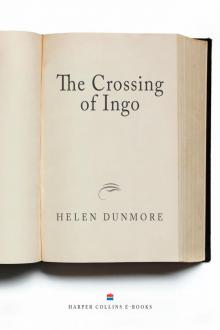 The Crossing of Ingo
The Crossing of Ingo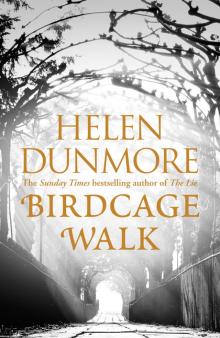 Birdcage Walk
Birdcage Walk Glad of These Times
Glad of These Times Counting the Stars
Counting the Stars With Your Crooked Heart
With Your Crooked Heart Burning Bright
Burning Bright House of Orphans
House of Orphans Mourning Ruby
Mourning Ruby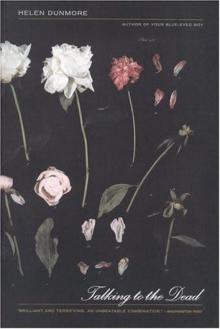 Talking to the Dead
Talking to the Dead Exposure
Exposure Ingo
Ingo The Malarkey
The Malarkey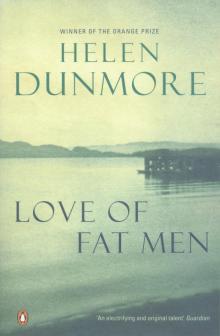 Love of Fat Men
Love of Fat Men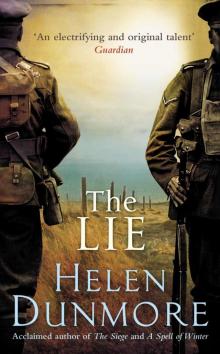 The Lie
The Lie The Siege
The Siege Inside the Wave
Inside the Wave Counting Backwards
Counting Backwards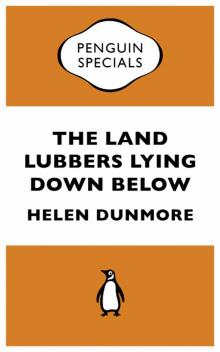 The Land Lubbers Lying Down Below (Penguin Specials)
The Land Lubbers Lying Down Below (Penguin Specials)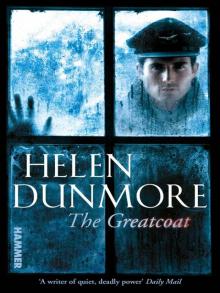 The Greatcoat
The Greatcoat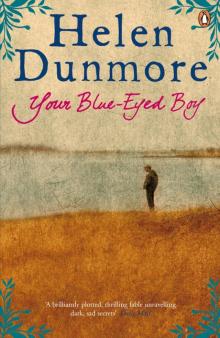 Your Blue Eyed Boy
Your Blue Eyed Boy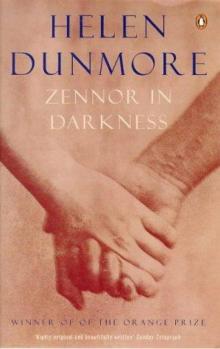 Zennor in Darkness
Zennor in Darkness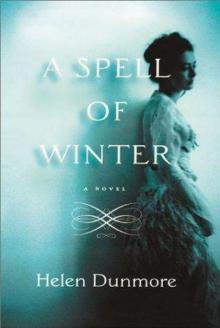 Spell of Winter
Spell of Winter Out of the Blue: Poems 1975-2001
Out of the Blue: Poems 1975-2001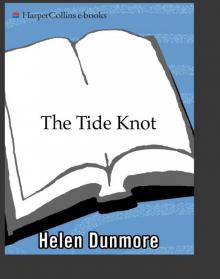 Tide Knot
Tide Knot The Betrayal
The Betrayal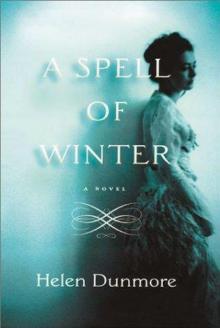 A Spell of Winter
A Spell of Winter Out of the Blue
Out of the Blue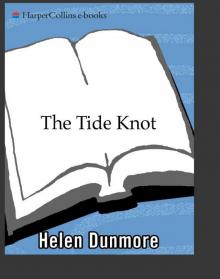 The Tide Knot
The Tide Knot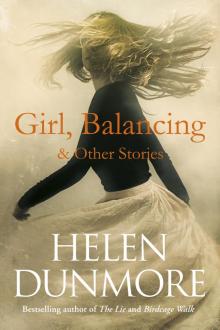 Girl, Balancing & Other Stories
Girl, Balancing & Other Stories Betrayal
Betrayal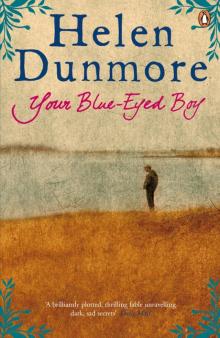 Your Blue-Eyed Boy
Your Blue-Eyed Boy